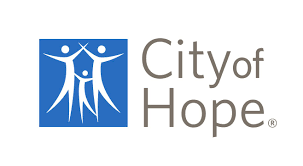
- October 2022
- Volume 16
- Issue 5
Helping Patients Navigate Complementary Treatments

Holistic options like acupuncture and music therapy may benefit those undergoing cancer treatment.
When faced with a cancer diagnosis, patients may consider acupuncture, meditation, music therapy, and other supplemental care alternatives. However, they should make sure to go to professionals who understand oncology, nursing experts say.
In July 2022, the University of Michigan released its National Poll on Healthy Aging, whose results showed that 2 in 3 adults between 50 and 80 (66%) reported using at least 1 integrative medicine strategy to treat a health problem. The most commonly used strategies were massage (41%), chiropractic (41%), meditation and mindfulness (27%), yoga (24%), and acupuncture (16%).1
“We’ve definitely seen an increase in patients who are looking for more natural treatments to reduce side effects such as anxiety, fatigue, and nausea,” Carey Ramirez, ANP-C, ACHPN, an advanced practice manager in the Department of Supportive Care Medicine at City of Hope, told Oncology Nursing News®. “Some patients are also reluctant to take opioids for pain and prefer a nonpharmacological option.”
Acupuncture is a popular choice for chronic cancer-related pain. The technique involves inserting thin, sterile needles into the body and can be administered only by licensed practitioners. Although not widely available, multiple studies have found it to be more effective than the control at reducing chronic pain.2,3 Mao et al, for instance, found that 10 weeks of acupuncture greatly outperformed usual care at reducing chronic muscuoloskeletal pain. The therapy has also been shown to reduce nausea, fatigue, dry mouth, insomnia, and neuropathy in cancer patients.3
Other integrative therapies, however, remain controversial because there is not enough evidence to support them and because they may have a negative effect on concurrent treatments. “We only recommend evidence-based complementary medicine treatments,” Ramirez said. “If a patient asks about…herbs and supplements, we’ll discuss the risks and benefits with them.” Ginger and garlic, he pointed out, may interfere with such anticoagulants as warfarin and increase a patient’s risk of bleeding.5
City of Hope’s Department of Supportive Care Medicine gives cancer patients physical, psychological, social, and practical support that improves outcomes and enables them to maximize their personal strengths.The evidence-based complementary therapies it offers are art and music therapy, yoga, meditation, and animal-assisted therapy, whereby trained animals visit patients in the hospital. The Department also plans to add an acupuncturist to the staff this year.
According to Ramirez, “it’s important for patients to seek treatment from an acupuncturist…that specializes in oncology or a massage therapist trained in oncology massage” because practitioners “should be familiar with…[the] precautions that need to be taken…with cancer patients.”
Adding Integrative Care to Oncology Treatments
Farah Momin, BSN, RN, an assistant nurse manager at the Integrative Medicine Center of MD Anderson Cancer Center, said in an interview that patients may benefit from a referral to an center like hers. MD Anderson patients are referred for acupuncture, oncology massage, yoga, and meditation, all of which are offered by the Integrative Medicine Center. Its staff works closely with every patient’s oncologist to ensure treatments meet needs and supplement the traditional care patients are receiving.
“Our program uses a combination of integrative approaches to treat and heal the whole person,” Momin said. Patients come to her with questions about what foods to avoid while undergoing cancer treatment, what foods fight the disease, and how they can minimize common side effects like fatigue, pain, and nausea. “We have a dietician on staff who…tailor[s]…meal plan[s] that help them meet their dietary goals,” she explained, adding that they “also have an acupuncturist and [a] massage therapist trained in oncology…[who] can treat common side effects, including radiation-induced neuropathy and dry mouth caused by radiation or chemotherapy.”
In addition, and particularly after the start of the pandemic, patients often ask to meet with a psychologist to deal with the many emotions they experience after a cancer diagnosis. “Since we work with immunocompromised patients, many of our free group classes have moved online to ensure patient safety,” Momin said. “Yoga, Connect and Reflect with Music, and Cooking for Optimal Health are all offered virtually to…patients and…caregivers.” Studies have shown that music not only alleviates anxiety, depression, and pain in patients with cancer but also improves their quality of life.2
Momin has seen complementary medicine help patients with many side effects of cancer and empower them as well—as long as pracitioners understand their needs. “Choosing to participate in an integrative medicine practice…can give cancer patients a sense of control” because “they’re being proactive and addressing the psychological and emotional aspects of their condition.”
A valuable resource for oncology nurses and other health care providers, the
Reference
1. Use of and Interest in integrative medicine strategies, July/August 2022. University of Michigan National Poll on Healthy Aging. Accessed September 7, 2022. https://bit.ly/3SmQndt
2. Mao JJ, Liou KT, Baser RE, et al. Effectiveness of electroacupuncture or auricular acupuncture vs usual care for chronic musculoskeletal pain among cancer survivors: the PEACE randomized clinical trial. JAMA Oncol. 2021;7(5):720-727. doi:10.1001/jamaoncol.2021.0310
3. Lu W, Dean-Clower E, Doherty-Gilman A, Rosenthal DS. The value of acupuncture in cancer care. Hematol Oncol Clin North Am. 2008;22(4):631-648, viii. doi:10.1016/j.hoc.2008.04.005
4. Wang Y, Tang H, Guo Q, et al. Effects of intravenous patient-controlled sufentanil analgesia and music therapy on pain and hemodynamics after surgery for lung cancer: a randomized parallel study. J Altern Complement Med. 2015;21(11):667-672. doi:10.1089/acm.2014.0310
5. Abebe W. Review of herbal medications with the potential to cause bleeding: dental implications, and risk prediction and prevention avenues. EPMA J. 2019;10(1):51-64. doi:10.1007/s13167-018-0158-2
Articles in this issue
about 3 years ago
Caring for the Caregiver: Practical Tips for Oncology Nursesover 3 years ago
Supporting the Novice Oncology NP: The Benefits of PreceptorshipNewsletter
Knowledge is power. Don’t miss the most recent breakthroughs in cancer care.

































